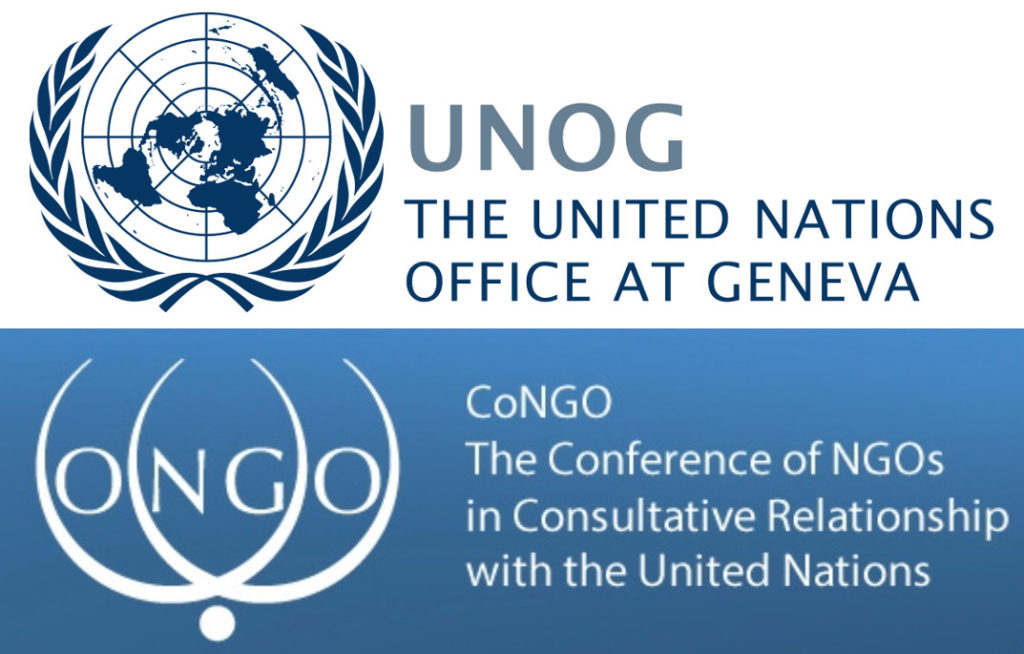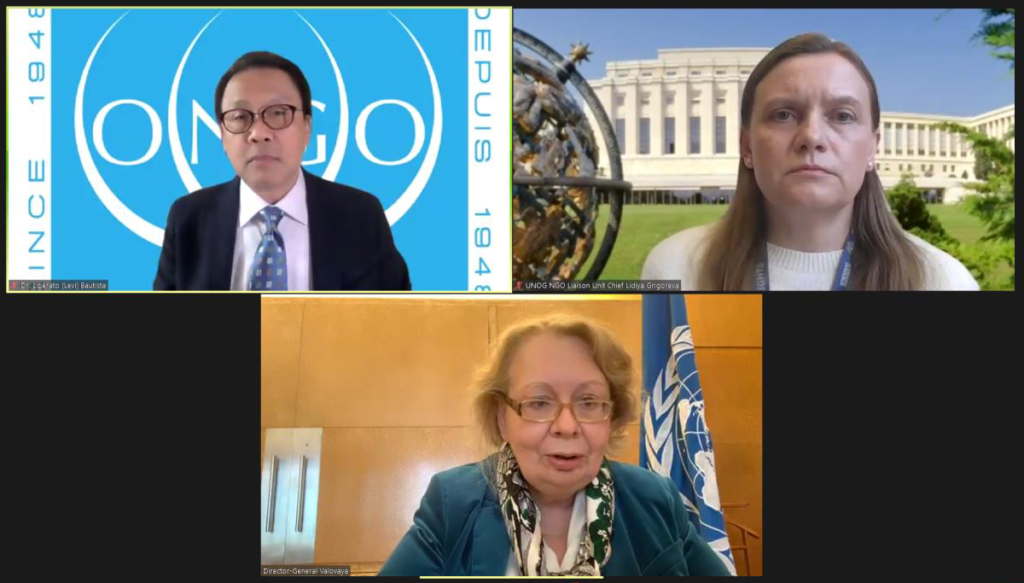
A virtual dialogue with Ms. Tatiana Valovaya, Director-General of the United Nations Office at Geneva (UNOG) and Dr. Liberato (Levi) Bautista, President of the Conference of Non-Governmental Organizations in Consultative Relationship with the United Nations (CoNGO) took place last 8 April, moderated by Mrs. Lidiya Grigoreva, Chief UNOG Liaison Unit.

This dialogue was an opportunity to focus on priorities and activities of the UNOG and civil society participation in the work of the United Nations.
After having presented CoNGO and conducted the discussion with Ms Valovaya, Dr. Liberato stressed the fact that access by NGO to UN is being more and more limited and in contradiction with the Resolution 1996/31, the Consultative Relationship between the United Nations and non-governmental organizations, available in this page.
The situation became worse due to COVID-19, and the question is how can this important access, as important for NGOs as for the UN, be ensured?
Multilateralism and the civil society are helping to achieve the UN SDGs. The importance of NGOs has been proven, eg. International criminal court or treaty on land mines came from initiatives of NGOs, also the treaty on small arms and child rights.
How can NGOs better understand the complexity and multiplicity of UN organizations and to work with them?
It’s a two way relationship. NGOs can and must offer their expertise in a professional way to the UN. CoNGO and the UN liaison office can help.
Director-General Mrs Valovaya answered that despite COVID-19, 100% of the UNOG programs have been executed, and highlighted the 2021 priorities of UNOG, which are:
- SDGs
- Peace and disarmament
- Human rights
- Gender equality
Multilateralism, inclusiveness, involvement of NGOs and of all of society, youth, individuals, private sector,etc are very important for the UN, and NGOs are viewed as full-fledged partners of UN Geneva.
Asked about multilateralism, Mrs Valovaya sees global mistrust as a major current problem. Citizens don’t trust their government, governments don’t trust each other.
Civil societies no longer want to be represented only by their governments but want more multilateralism and to be heard and consulted directly. This is the new challenge for the UN office and CoNGO.
Actually NGOS must work not only with UN staff, but also with member states and their governments. The UN office is an intergovernmental organization and can’t take decisions itself, as its role is limited to the implementation of the decisions taken by the member states.
People often call for multilateralism to be strengthened and more voice to be given to UN institutions. As the UN is a multinational (and not supranational) organization, such changes can only be decided by the member states themselves.
In this respect, Dr. Bautista recalls the importance of giving a voice to NGOs, eg. International criminal court or treaty on land mines came from initiatives of NGOs, also the treaty on small arms and children rights.
Although Ms Valovaya is very enthusiastic about the 17 SDGs and the fact that it is the first time in history that humanity has a road map that covers everything, her biggest worry is what is going to happen after 2030? Are we going back to “normal life”?
It is important to use this decade to change our mindsets and to start living differently.
Due to COVID-19, online meetings are now made possible, and it will be possible in the future to participate in UNOG meetings in a hybrid way, giving an easier access at low costs for small remote countries and organizations.
Meeting notes by Stefan Arquint and Alexandre Kounitzky, from the FEANI/WFEO National Committee, Switzerland
APR
2021
